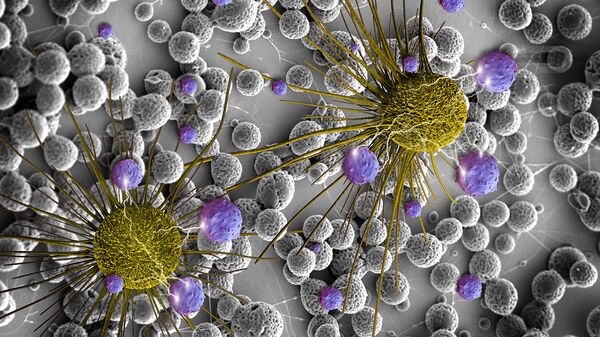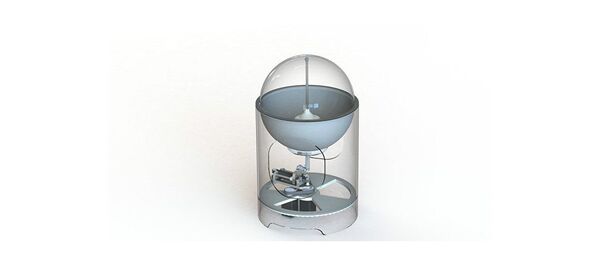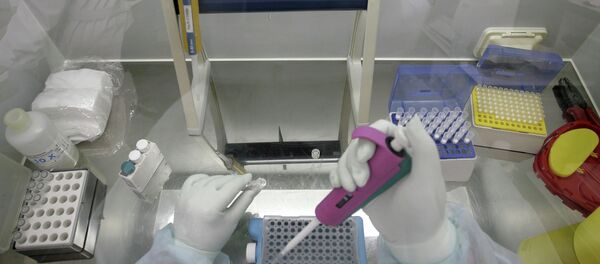Regina Konstantinova — Moscow Institute of Physics and Technology (MIPT) Professor Alexander Kiselyov who leads the research told Sputnik International about the novel substance.
"The chemical compound was synthesized from an early product found in nature — parsley and dill seeds. Liquid carbon dioxide was used for extracting the needed natural components, which were then purified in the N.D. Zelinsky Institute of Organic Chemistry, Russian Academy of Sciences," explained Prof. Kiselyov, Moscow State University graduate, who received PhD degree in synthetic organic chemistry at the Georgia State University, was a Postdoc fellow at the Ben May Department for Cancer Research of the University of Chicago and at the Columbia University and now continues to work in national medicinal chemistry, structural biology and drug development.
Tubulin is one of the basic proteins critical for cell division. "Cancer cells are considered to be especially sensitive to the influence on tubulin. So, when treatment is used properly and accurately, cancer cells die first."
Prof. Kiselyov and his team have been working on such drugs for about a decade. Apart from numerous classes of the anti-cancerous compounds, they have also developed a highly sensitive test using sea urchin embryos. "Active and specific substances that affect tubulin in particular are easily and clearly proving their efficiency in this assay," the researcher said.
Thus, an effective synthesis of substances from easily available natural sources combined with tests on urchin embryos and panels of human cancer cells, including resistant ones, led to the identification of key material, Alexander Kiselyov concluded.
"Interestingly, the substance acted most effectively against ovarian cancer cells. Our team is currently trying to discover the molecular ‘reason' for such specificity in order to further optimize this substance, to improve its effectiveness and its ‘safety' towards healthy cells," he added.
"Our preliminary tests show that our substance is able to kill even chemotherapy resistant cells of ovarian cancer. However, despite the promising results, we have a lot of hard work in front of us," Prof. Kiselyov told Sputnik. "Elaboration of the effective and specific treatment for clinical testing takes at least few years of research in vivo."




